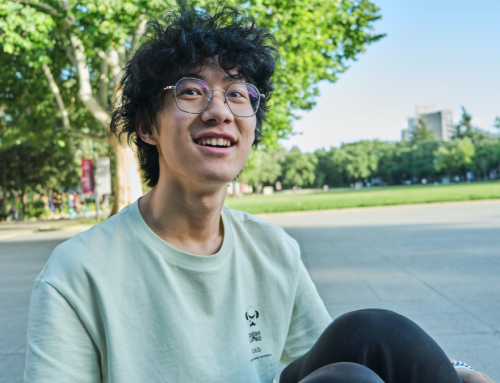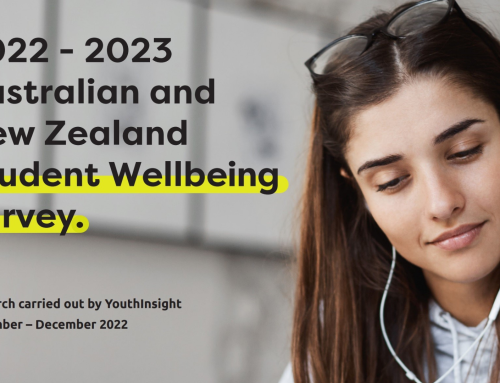
How can australian universities support those who remain?
Universities nation-wide have been counting on the return of international students this year, however new research commissioned by leading online study support service Studiosity and conducted by independent research agency Student Edge, has indicated that only half (58%) of international students enrolled at Australian universities plan on returning to campus this year. Of the students not returning to campus in Australia, 2 in 5 (41%) will be studying elsewhere.[1]
The Studiosity research also indicates that during their time studying abroad, 8 in 10 international students felt lonely or homesick, made up of 50% who felt isolated from friends and family back home, and 28% who found it difficult to make new friends.[2] But in positive news, for these students there are a few key changes that are simple to implement and could help others feel less alone: more networking events for international students (42%), additional peer support programs (33%) and a “buddy” system to help them transition into university life in Australia (20%).[3]
Hoang Lan Tran, an international student studying nursing at the University of Tasmania, says “One of the best things I experienced has been how friendly and supportive people are during the pandemic. However, the lows would be that I sometimes feel isolated and cut off from social interactions and family relationships.”
Lin Yuan, an international student studying aviation at the University of South Australia, says “The Australian boarder was closed in 2020 and I’ve been unable to come here until recently. At the beginning, I felt depressed and down, I could not get used to online studying and exams. I kept wanting to ‘skip’ this period of time and go back to Adelaide again. I felt lost and felt like I had no control over my life.”
Professor Judyth Sachs, Chief Academic Officer at Studiosity says, “In years prior to COVID the wellbeing of international students was certainly on the radar – and indeed risk registers – as this group faces higher financial pressure, geographical logistics, with the added challenges of learning the language as well as the curriculum. It’s understandable that some might be anxious about their sense of belonging with their university, and I know that university leaders are looking at strengthening initiatives that help these students.”
A few initiatives Professor Judyth Sachs suggests that can help international students to feel supported whilst studying abroad are:
- Accessible peer support programs: Students need to feel they have a rightful place within the university and that they belong. Research shows that students benefit from peer support and peer-to-peer learning programs, and that it increases confidence and sense of belonging in students.[4] Students want equal access to positive experiences, interaction with peers, and to engage with students of culturally and linguistically-diverse backgrounds – to fulfil the promise of a university degree as a positive and life-changing investment.
- Networking events: With the 2022 academic year underway, there has been understandable revelling in being back on campus. I hope that we can continue to increase belonging on campus, while also keeping the inclusivity and innovation that came from sudden adaptation in 2020. This includes recognising the many regional, rural, remote, online, working, and neurodiverse students who can’t always participate in ‘traditional’ student life.
- Ensure students have a range of study support options: Students learn best when they have a range of different study support options at their figure tips that are easily accessible to them 24/7. It’s clear that Australian universities are looking holistically at their whole-of-institution approach to student services. Struggling academically correlates with higher stress levels, feelings associated with poor mental and emotional wellbeing, and an overall negative outlook on the future.
Studiosity works alongside universities to provide online study support, anytime, anywhere to their students. The company currently partners with more than 100 universities, to deliver academic support online, right when students need it, helping thousands to progress and succeed with their studies, regardless of their study mode, background, personal circumstances or location.
For further information, or to request an interview with Professor Judyth Sachs, contact:
Kathleen Quere at Agent99 PR on 0421 252 326 or kathleen@agent99pr.com
*Research was conducted and analysed by YouthInsight, the full service research team of Student Edge. The data is based on analysis of over 1,000 Australian university student responses in 2022. The students used for this study were 18+ years old, and consisted of a mix of both domestic and internationally enrolled students.
[1] Studiosity Student Wellbeing Survey, Student Edge 2022
[2] Studiosity Student Wellbeing Survey, Student Edge 2022
[3] Studiosity Student Wellbeing Survey, Student Edge 2022
[4] Tullis, J., & Goldstone, R. (2020). Why does peer instruction benefit student learning?. Cognitive Research: Principles And Implications, 5(1). doi: 10.1186/s41235-020-00218-5









Leave A Comment